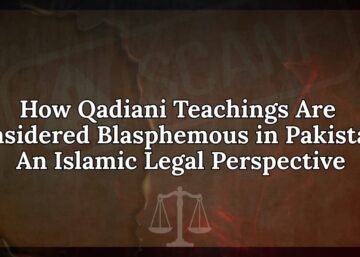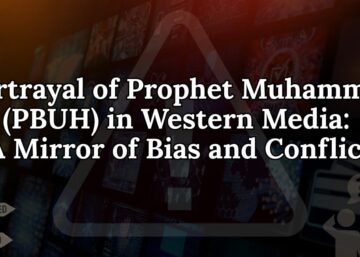Introduction: Shielding the Finality of Prophethood in Ridda Wars
The Ridda Wars, also known as the Wars of Apostasy (an act of refusing to continue to follow), were a series of military campaigns launched by the first caliph, Abu Bakr, against various tribes and factions in Arabia that renounced Islam following the death of the Holy Prophet Muhammad (peace be upon him). These tribes either rejected Islamic teachings, refused to pay zakat (almsgiving), or claimed prophethood for themselves. The companions of the Prophet played a pivotal role in defending the concept of the finality of prophethood during this critical period, ensuring the continuity of Islam and safeguarding its teachings. Here’s how they protected this fundamental principle:
Resilience of Abu Bakr (RA)
Abu Bakr, the first caliph and a close companion of the Prophet Muhammad (peace be upon him), took immediate action against the apostates. His leadership was crucial in rallying the remaining companions and the Muslim community to stand united against those who sought to undermine Islam. He clearly articulated the position that Muhammad was the final prophet, emphasizing that any claims of new prophethood were false and heretical. Abu Bakr’s resolve laid the groundwork for a unified response to the challenges posed by various tribes.
Harmony in Solidifying Faith
Abu Bakr mobilized the companions of the Prophet, many of whom were seasoned warriors and influential leaders within their tribes. They formed the backbone of the Muslim army during the Ridda Wars. Notable companions such as Umar ibn al-Khattab, Khalid ibn al-Walid, and others played vital roles in these campaigns, utilizing their military experience and leadership skills to confront the apostate tribes. Their commitment to defending the finality of prophethood motivated their fellow Muslims and strengthened the resolve of the community.
Challenging and Conquering False Prophets
Several individuals claimed prophethood after the death of the Prophet Muhammad (peace be upon him), most notably Musaylima al-Kadhdhab and al-Aswad al-Ansi. The companions, under Abu Bakr’s leadership, recognized the threat posed by these false prophets to the integrity of Islam. They engaged in military campaigns to combat these claims, effectively demonstrating the commitment to the belief that Muhammad was the last prophet. The defeat of these self-proclaimed prophets served as a clear message that no one could claim prophethood after Muhammad (peace be upon him).
Fortifying Principality of Faith
During the Ridda Wars, the companions emphasized the importance of adhering to the teachings of the Prophet Muhammad (peace be upon him) and the implications of his finality. They held gatherings to remind the community of the core tenets of Islam, reinforcing the belief that the revelations received by Muhammad (peace be upon him) were complete and sufficient. This educational aspect was essential in clarifying the confusion among the tribes who had turned away from Islam.
Zakat – Unifying Spiritual Duty
One of the primary reasons for the apostasy of many tribes was their refusal to pay zakat. Abu Bakr and his companions made it clear that zakat was not merely a financial obligation but a spiritual duty tied to the faith. By insisting on the collection of zakat, they underscored the importance of communal responsibility and the unity of the Ummah. This insistence reinforced the belief that following the Prophet’s teachings was imperative and that the rejection of zakat was a rejection of Islam itself.
Martyrdom and Sacrifice: A Test of Faith
Many companions displayed extraordinary bravery and self-sacrifice during the Ridda Wars. Their willingness to fight and, if necessary, lay down their lives for the preservation of Islam demonstrated their deep commitment to the faith and the finality of prophethood. This spirit of martyrdom inspired other Muslims to join the cause and reaffirmed their loyalty to the Prophet’s teachings.
Executing Justice and Order: Captivating Hearts and Minds
The companions, under Abu Bakr’s command, focused on establishing justice and order within the Muslim community. Their efforts to bring back the tribes that had strayed from Islam were marked by principles of justice and compassion. By demonstrating the values of Islam, they not only sought to defeat the apostates militarily but also aimed to win back their hearts and minds. This approach highlighted the comprehensive nature of the final message of the Prophet Muhammad (peace be upon him) and showcased its relevance to all aspects of life.
Victory and Consolidation of Islam
The successful conclusion of the Ridda Wars, culminating in the defeat of the apostate tribes, was crucial for consolidating the Islamic state. Muslim army also fought those tribes including Musaylima al-Kadhdhab followers who were Muslims and were following all the teachings including offering prayers, paying zakat, performing Hajj etc. except the belief that Muhammad (peace be upon him) is the final prophet. Thousands of such people were killed and remaining brought back to the original faith taught by Prophet Muhammad (peace be upon him).
The companions’ commitment to the finality of prophethood ensured that the message of Islam remained intact, and that the community emerged stronger and more unified. The victory reinforced the understanding that Muhammad (peace be upon him) was the last messenger, and it served as a deterrent to any future claims of new prophethood.
Conclusion:
The companions of the Holy Prophet Muhammad (peace be upon him) played a decisive role in safeguarding the finality of prophethood during the Ridda Wars. Their leadership, courage, and unwavering dedication to Islamic teachings ensured that the doctrine of the finality of prophethood remained untainted and preserved for future generations. By confronting false prophets, uniting the community, and establishing justice, they set a powerful example of what it means to defend the integrity of faith. Their legacy continues to inspire Muslims today to remain steadfast in upholding the core principles of Islam and recognizing the significance of Muhammad (peace be upon him) as the last and final messenger of Allah.



